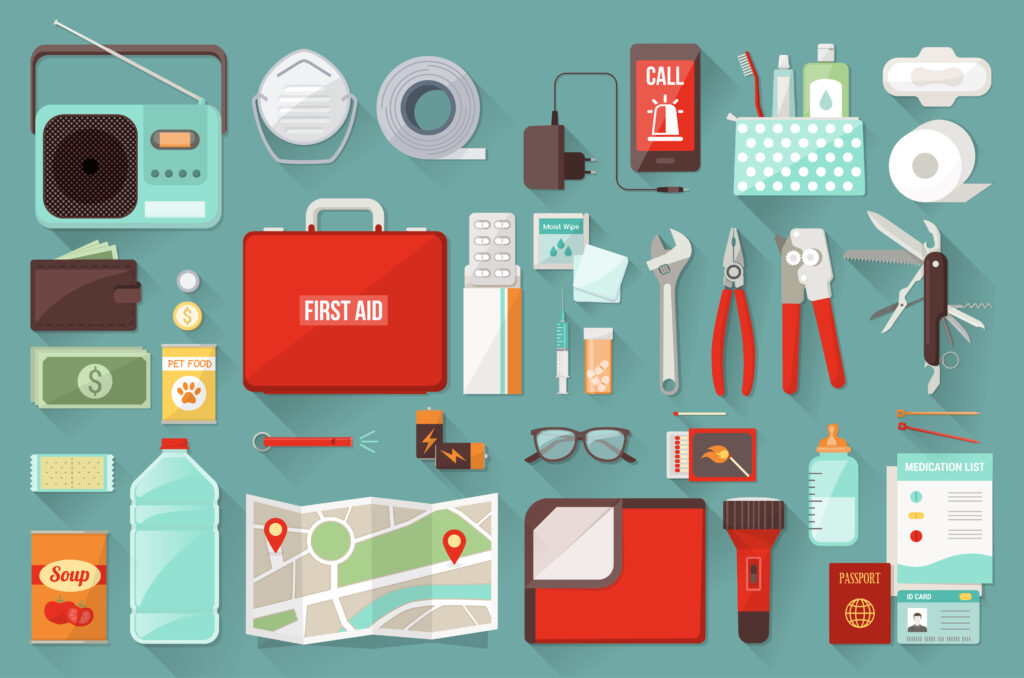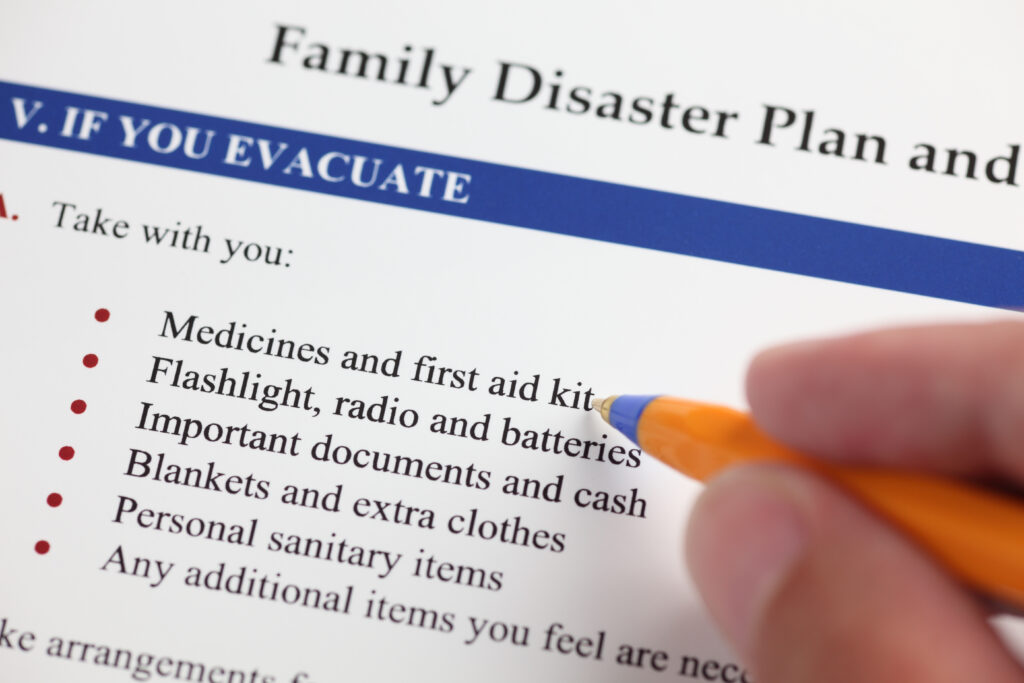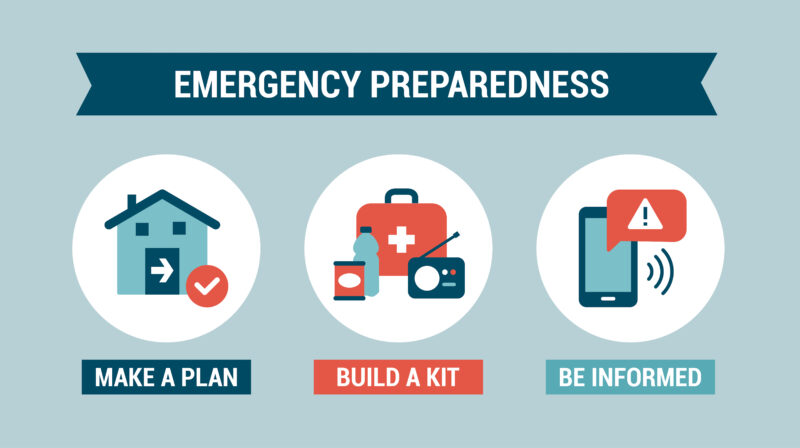Fires, floods, hurricanes, tornadoes, earthquakes—natural disasters seem to be happening more frequently and intensively each year. In 2020, the National Safety Council reports 585 deaths and 1,708 injuries due to weather-related events.
While we’re all at risk of being hurt during a natural disaster, the risk can be far worse for seniors, often due to their lack of mobility. And for those with dementia disorders or Alzheimer’s, the inability to think clearly about what to do when an emergency happens can make the experience even scarier.
If you’re a caregiver for someone who lives with you, you can ensure they’re prepared for an emergency and taken care of during a weather-related event. But if you’re caring for someone who lives on their own, you’ll need to have a plan in place if disaster strikes. While a warning system can often alert us before a weather disaster, an earthquake or tornado can strike suddenly and violently, making it challenging to get to your loved one.
Start making a plan now for how to care for your loved one in the case of a future emergency.

Always have an emergency kit ready
You won’t be able to care for your senior if you aren’t taking care of yourself and the rest of your family, so start with a basic emergency kit that will keep everyone safe for at least three days.
Your three-day emergency kit should stock the following:
- One gallon of water per day per person
- Nonperishable food such as dried fruit, beef jerky, canned vegetables, and crackers
- A radio that is either battery-powered or hand-cranked
- A flashlight
- A cell phone with chargers and a charged backup battery
- A noisemaker such as a whistle or air horn to signal for help
- Extra batteries for everything in the kit
- Can opener for canned food
- Blankets and towels
- Cash (ATMs won’t be working if the power is out)
- Hygiene products such as hand sanitizer, baby wipes, toilet paper, dry shampoo, hairbrush, toothbrushes and toothpaste
For older adults, add some additional items:
- At least a three-day supply of medications (If medications require refrigeration, have instant-cooling ice packs available, and don’t forget syringes and sanitizing wipes.)
- Eyeglasses and backup hearing aids
- Backup oxygen, walker, or wheelchair
- Protective undergarments
- Sturdy shoes
Also be sure to pack something that will comfort those with dementia or Alzheimer’s in unfamiliar situations, like a special blanket, toy or photo of a loved one they still remember.
Pay special attention to Alzheimer’s or dementia patients
When a natural disaster strikes, everyone will be scared, anxious and confused, but your memory-impaired family member may be more agitated. Routines are so important to those with memory issues, and any change can be very upsetting. Keep your eye on your loved one, and follow these tips to keep them calm:
- Find outlets for anxious loved ones, like sorting, walking or singing.
- Try to distract your family member from the activity around them.
- If you go to a shelter, keep those around you informed of the situation.
- Stay on top of medications.
- Be brief and straightforward when explaining what is happening.
Enroll your memory-impaired senior in a safe return program
The chaos of a natural disaster means an older adult with memory impairment could wander off while everyone around them is taking care of other problems. A safe return program is a great idea—weather event or not. Enroll your loved one to give you some peace of mind.

Have a family plan
If your loved one lives independently, coordinate with them to contact a family member or friend in another city or state to confirm that you are all OK. You may not be able to reach each other by phone or text, but you may be able to reach people in other places. Give a key to a neighbor or friend who can check on your loved one if you cannot get to them if they live on their own.
If your senior lives in an assisted living or memory care community, familiarize yourself with their disaster plan so you can feel secure knowing they’ll be safe and taken care of if something happens. Have a small kit for them in their private space in the community so they have all their medications and phone numbers they need.
Digitize everything before disaster strikes
Traditional advice for disaster preparedness includes having documents on hand in a waterproof bag, including medical records, medication lists, photo IDs, power of attorney, and crucial phone numbers. However, having all this information on a cloud-based program you can access on the internet will ensure your data is safe no matter how bad the weather or how strong the earthquake is. You may still want to have copies in your disaster kit, but being able to get to your most important documents online may be a considerable help during a crisis. You can use the CDC’s form to create your loved one’s care plan and then upload it and print it as well.
In most parts of the country, it’s not a question of if a disaster will strike—it’s a question of when. Talk to your loved one about what plan you have in place and how you will help them get through it. Make sure they know where the emergency kit is located and what’s in it. If you know you’ve planned for what may happen, you will be much calmer if it does.

